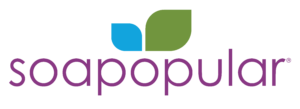Essential Tips on Hygiene
Wash your hands. OK, this isn’t a housecleaning technique. But it’s worth mentioning, because it’s the single most important way to prevent the spread of infectious diseases.
We all should know the importance of washing after using the toilet, yet less than 50 percent of people actually do it — and almost no one does it properly. Wash for 30 to 45 seconds, scrubbing between fingers and under nails. It’s even a good idea to lather, rinse and repeat.
Don’t multitask. People often use the same sponge or cloth to clean everything in the kitchen — the counter, the dishes, the cutting board, etc. “I’ve seen people use it on their kids to wipe their faces,” said one microbiologist.
To prevent cross-contamination. Use a different implement for each cleaning task in the kitchen and bathroom. Disinfect cutting boards after each use.
Replace the sponge frequently. Sponges and scrubbers provide the warm, moist conditions and trapped food particles on which bacteria thrive. The bacteria can multiply, increasing from a few to millions in a matter of hours.
You should keep a sponge (for use in the kitchen) no longer than a week. Between uses, clean it with an antibacterial cleaning product and let it dry. Look for thinner sponges, which dry faster.
Empty the vacuum. Dangerous organisms such as salmonella could be multiplying in your vacuum cleaner bag, waiting to be released into the air every time you vacuum. Empty the collection bag at least monthly, or switch to a vacuum with a HEPA filter, which reduces airborne pollution.
Disinfect the garbage can (dustbin/wastebin). Germs that grow in your garbage can don’t always stay there. It’s common for a plastic liner to leak, allowing waste to collect in the bottom of the can (bin). Then when someone empties the container, the person typically sets the bag on a surface such as the floor, a counter or a chair, spreading the bacteria to that surface as well as his or her hands.
To stem bacteria growth, clean and disinfect the garbage can (dustbin) weekly, and use antibacterial garbage bags (bin bags). If there’s no visible gunk in the container, a spray of Lysol should suffice.
Clean the can opener. That little bit of juice or food left on the blade after you open a can invites bacteria growth. Washing or even just rinsing the opener after you use it will prevent problems.
Change the towels. The average person sloughs off 1 million skin cells an hour. Bath towels harbor (harbour) those cells and their bacteria, and can serve as a terry-clothpetrie dish if they’re folded and left in a damp bathroom. Hang towels unfolded to let them air dry, and replacing them with clean towels after three uses.
Protect your toothbrush. Every time a toilet is flushed, fecal matter and bacteria spray 20 feet in the air. Keep your toothbrush out of the line of fire by storing it in a drawer, cabinet or other enclosed place.
You should also sanitize your toothbrush daily by rinsing it with peroxide or mouthwash. Yes, the germs on your toothbrush are your own, but they can multiply to enormous numbers between uses.



